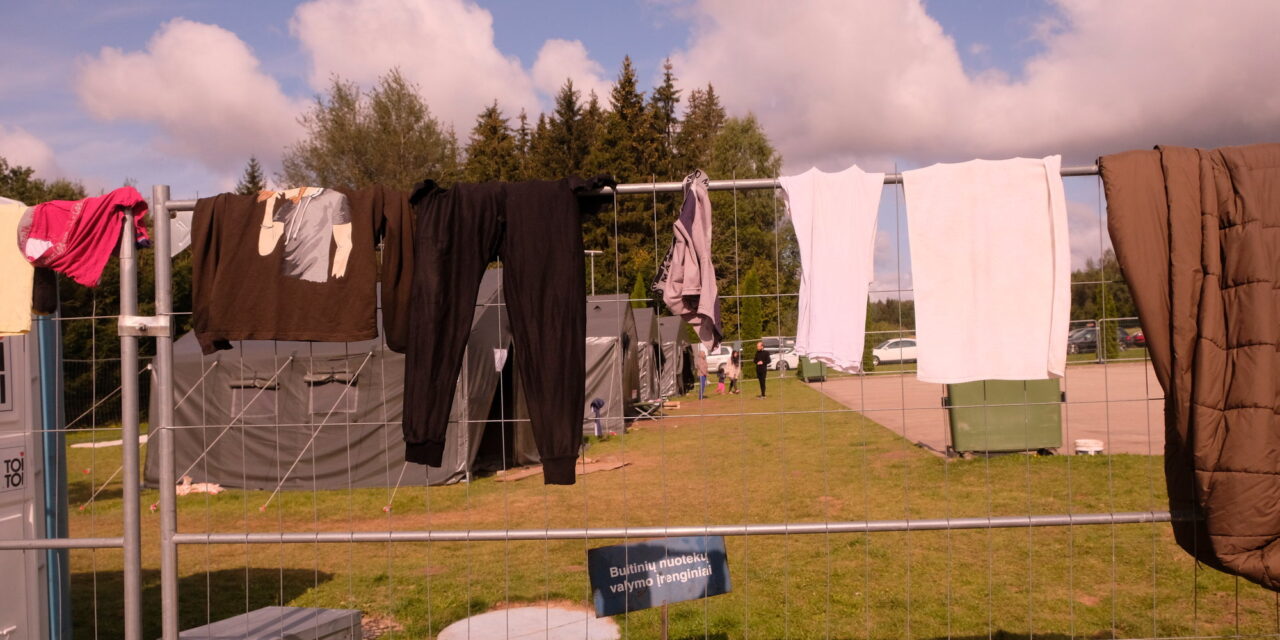The European Parliament has adopted all legislative chapters of the new EU regulation on the reform of the European Union migration and asylum pact. After eight years of negotiations, the EU immigration policy would change, the norm will enter into force in 2026, and the European Commission will determine in the coming months how the pact will be put into practice. The proposal for a directive, presented by the rapporteur Sophia in 't Veld (Renew, Netherlands), was adopted by MEPs by 398 votes to 162, with 60 abstentions.
Can the pact be "undone", repealed, and if so, how?
The pact has not yet entered into force, it must be adopted by a qualified majority by the Council of the European Union (hereinafter: the Council) within the framework of the ordinary legislative procedure. In connection with the latter, two conditions must be met at the same time: 55% of the member states (that is, in practice 15 out of 27 member states) vote in favor of the proposal (that is, yes), and the member states supporting the proposal represent at least 65% of the total population of the EU. The possible blocking minority must consist of at least four members of the Council: if the blocking minority does not reach this threshold, the qualified majority must be considered to have been reached. So, if four member states vote no, the proposal cannot be considered accepted, however, the chances of this are small, since only Hungary and Poland have declared that they will vote against the pact.
The annulment of a legal act of an institution, body or office of the EU can be requested before the European Court of Justice, whose exclusive jurisdiction includes the claims filed by a member state against the European Parliament and/or the Council, or those initiated by an EU institution against another institution . Hungary previously had a Hungarian action for the annulment of an EU quota decision at the European Court of Justice (on September 22, 2015, the Council adopted the so-called quota decision 2015/1601/EU by a qualified majority vote, and Hungary submitted its action in December 2015). Pursuant to point 18 of the document "Declarations attached to the final declaration of the intergovernmental conference that adopted the Treaty of Lisbon" signed on December 13, 2007, at the initiative of one or more members of the Council (representatives of the member states), the Treaty on the Functioning of the European Union (hereinafter: TFEU) 241 in accordance with Article ., may request the Commission to submit a proposal for the repeal of a legislative act. Pursuant to Article 241 of the TFEU, the Council may, by a simple majority, ask the Commission to carry out the investigations deemed necessary by the Council to achieve the common objectives, and to submit appropriate proposals to it. If the Commission does not submit a proposal, it will inform the Council of the reasons for this.
What obligations do the recipients have (training, social care, etc.)?
The new rules must ensure that applicants for international protection can live in similar conditions and at a suitable standard in all Member States. The main objective of the amended Reception Conditions Directive is to ensure equal reception standards in EU member states in terms of material conditions, including housing, healthcare and an adequate standard of living for asylum seekers. As a result, registered asylum seekers can start working sooner and their integration prospects improve. The new rules also aim to deter applicants from moving within the EU after the first registration.
The draft directive also stipulates that asylum seekers must be granted the opportunity to enter the labor market no later than 6 months after submitting their application for international protection. If the asylum seeker has adequate financial support, they can be obliged to cover the costs of the reception conditions or contribute to them. The draft takes into account persons requiring special reception conditions, such as minors, especially the right to education, as well as the fact that unaccompanied minors must be assigned an escort representing their interests in an appropriate manner.
Among some substantive aspects, it should be mentioned that Member States inform applicants as soon as possible and in good time of the reception conditions set out in this Directive, including specific information about their reception system, in order that the applicants can actually exercise the rights set out in this Directive and sufficiently able to fulfill their obligations under this directive. In order to accommodate or re-accommodate applicants, Member States shall take into account objective factors, including the family unit referred to in Article 14 and the applicants' special reception needs. Member States shall ensure that applicants have effective access to their rights under this Directive and to the procedural guarantees of the procedure for international protection within the geographical area to which the applicants belong. This geographical area must be sufficiently large, allow access to the necessary public infrastructure, and must not affect the inalienable privacy of the applicants.
Member States may not detain a person solely because the person is an applicant or on the basis of the applicant's nationality. Detention can only be based on one or more reasons for detention defined in the law. Detention cannot be of a punitive nature, and applicants may be required to undergo a medical screening for public health reasons. Member States shall provide minor children of applicants and minor applicants with the same access to education as their own nationals, as long as no expulsion measures are taken against such minors or their parents. The specific needs of minors must be taken into account, in particular respecting the child's right to education and access to health care. As a general rule, the education of minors must be provided together with the education of the Member States' own citizens, and it must be of the same quality. Member States shall make every effort to ensure the continuity of the education of minors until expulsion measures are taken against the minors or their parents. Member States may not withdraw secondary education solely on the grounds that the minor has reached the age of majority.
In addition to the above, Member States shall ensure that applicants have access to language courses, citizenship education or vocational training courses deemed appropriate by the respective Member State in order to promote the applicants' ability to act independently, contact the competent authorities, look for work, or - depending on the national system - Member States facilitate access to such courses, regardless of whether applicants have access to the labor market according to the special rules of the law. If applicants have adequate financial means, Member States may require them to cover or contribute to the costs of the courses referred to in the first paragraph.
It is also important that the member states ensure that, in accordance with the provisions of the standard, in addition to the financial conditions of reception and health care, they provide the applicants with an adequate standard of living, which guarantees their livelihood, protects their physical and mental health, and respects their rights according to the EU Charter of Fundamental Rights. Member States shall ensure that the appropriate standard of living referred to in the first subparagraph is met in the specific situation of applicants with special reception needs, as well as in connection with the situation of detained persons.
How can the quota migrant be kept in the destination state? Is there a follow-up?
In order to prevent onward journeys, the directive limits the obligation to provide reception conditions to the Member State responsible for the application for international protection. In addition, asylum seekers can only receive a travel document if their stay in another member state is justified by serious humanitarian reasons. The draft directive also allows member states to limit the free movement of asylum seekers to a given geographic area, determine where they can live, and oblige them to register periodically. If these measures are not satisfactory and there is a risk of absconding, Member States may use the instrument of detention.
Presumably, the intention of the law makers was to create a common procedure, so that the assessment of granting and withdrawing international protection would be uniform throughout the Union, however, there is no satisfactory answer as to how the new regulation can keep migrants distributed based on quotas in the target states. The so-called all persons who do not meet the conditions for entry into the Union will be subject to a pre-screening procedure, and the procedure, which will last up to seven days, will include the establishment of identity, the recording of biometric data, and health and safety checks.
The regulation states that the authorities will store the data of those who do not meet the conditions for entry into the EU - including fingerprints and facial photographs over the age of six - in a renewed Eurodac database. Although the pact obliges the member states to take effective action against illegal border crossings, the EU has so far been reluctant to participate in the financing of, for example, the southern border fence and technical border barrier, and in light of this, the new EU regulations vis-à-vis Hungary, for example, are hypocritical.
On the basis of Eurodac, the migrants will be somewhat traceable, so the follow-up can be realized (with questionable effectiveness for the time being). The reformed Eurodac database will serve to more effectively identify those arriving illegally in the EU territory, supplemented by fingerprints and facial images, among other things, in the case of children from the age of six. The authorities will also be able to record if someone poses a security risk, is violent or has a weapon. With Council Regulation 2725/2000/EC on the establishment of "Eurodac" for the comparison of fingerprints - which was replaced by the currently effective Parliamentary and Council Regulation 603/2013/EU on July 20, 2015 - the member states created the so-called . Eurodac system (European Dactylographic Comparison System), which enables countries applying the Dublin Regulation to compare the fingerprints stored in the system to determine whether a foreign citizen illegally staying in a member state of the "Dublin area" and/or applying for asylum has previously applied for asylum in a in another Member State, or whether you entered this area illegally. Based on the comparison of fingerprints, the member states are able to determine which member state is entitled and obliged to conduct the asylum or immigration police procedure against the given person.
"Eurodac" consists of a central unit established within the European Commission with a computerized central database suitable for comparing fingerprints, as well as a system for electronic data transfer between the member states and the database, on which the member states send the data to the central system.
It should be noted that only supporters of European federalism can consider the adoption of the migration pact as a truly historic and indispensable step, but in reality it is a question of the necessary "protection" - but actually more of management - of the external EU borders being implemented in such a way as to weaken the independent independence of the nation states. the exercise of its power, for example by imposing "mandatory solidarity" on the member states, namely in connection with the EU leaders' pro-migration (and encouraging) policy. Hungary has consistently rejected mandatory distribution since the migration problem was put on the agenda in 2015, as well as the need to provide a source of money from the national budget - to pay a quasi-fine - for not accepting migrants. It is not by chance that experts also point out that the decision is unenforceable in this form.
Source: alaptorvenyblog.hu
Cover image: MTI/EPA/Valda Kalnina












